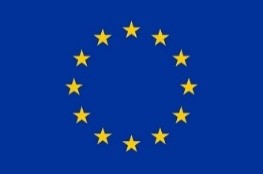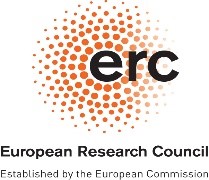Received:
2018-11-16 | Accepted:
2019-02-20 | Published:
2019-03-30
Title
A step-by-step approach to social marketing in energy transition
Abstract
By examining social marketing this articles has featured a step-by step approach for residential behavioural change towards sustainable energy transition. Specifically, this article considers the value-based approach instead of rational information campaigns for behavioural change of energy users. The proposed framework is based on environmental values and designed to transform the selected destructive behaviour into a sustainable one. The framework consist of five steps: (1) selecting the behaviour, (2) user orientation, (3) exchange, (4) marketing mix: elements of intervention, (5) measuring behaviour change. As behavioural change is the final goal of any energy efficiency campaign, it becomes also a starting point and an objective of the rest of the activities in the framework. Second, we suggest using the user orientation concept that divides the society into three groups based on their attitude towards environmental issues, i.e. environmentalist, the environmentally concerned and the disinterested. In the third step we apply the exchange theory; whereas in the step of 'marketing mix' a conceptual combination of six elements for energy transition is reasoned: proposition, cost, communication, communities and partnership. Finally, the fifth step stresses on the measurement of the behavioural change that enables energy transition. The proposed step-by step framework is based on theory and builded on current practice in a field that is analysed in the article.
Keywords
energy transition, renewable energy sources, household, social marketing, communication campain
JEL classifications
M30
, D83
, O10
, P48
URI
http://jssidoi.org/ird/article/3
DOI
HAL
Pages
19-32
Funding
This research was supported by the project,which has received funding from the European Union's Horizon 2020 research and innovation programme European Research Council (ERC) under the European Union's Horizon 2020 research and innovation programme Marie Sklodowska-Curie Research and Innovation Staff Exchanges ES H2020-MSCA-RISE-2014 CLUSDEVMED (2015-2019) Grant Agreement Number 645730730
This is an open access issue and all published articles are licensed under a
Creative Commons Attribution 4.0 International License
References
2030 Energy Strategy (2014). Retrieved from https://ec.europa.eu/energy/en/topics/energy-strategy-and-energy-union/2030-energy-strategy
Search via ReFindit
Amsterdam's Circular Economy Roadmap. (2018). Case Study. https://www.c40.org/case_studies/amsterdam-s-circular-economy-roadmap-lessons-learned-and-tools-for-upscaling
Search via ReFindit
Anda, M., & Temmen, J. (2014). Smart metering for residential energy efficiency: The use of community based social marketing for behavioural change and smart grid introduction. Renewable Energy, 67, 119–127. https://doi.org/10.1016/j.renene.2013.11.020
Search via ReFindit
Arctik: Communication for Sustainability. (n.d.). Retrieved February 5, 2019, from http://arctik.eu/projects/49
Search via ReFindit
Atansah, P., Khandan, M., Moss, T., Mukherjee, A., & Richmond, J. (2017). When Do Subsidy Reforms Stick? Lessons from Iran, Nigeria, and India. Retrieved from https://www.cgdev.org/publication/when-do-subsidy-reforms-stick-lessons-iran-nigeria-and-india
Search via ReFindit
Baublys, J., Miškinis, V., Konstantinavičiūtė, I., & Lekavičius, V. (2015). Energy Efficiency as Precondition of Energy Security. Journal of Security and Sustainability Issues, 4(3), 197–208. https://doi.org/10.9770/jssi.2015.4.3(1)
Search via ReFindit
Beckenbach, F., & Kahlenborn, W. (2016). New Perspectives for Environmental Policies Through Behavioral Economics. (F. Beckenbach & W. Kahlenborn, Eds.). Cham: Springer International Publishing. https://doi.org/10.1007/978-3-319-16793-0
Search via ReFindit
Ben, H., & Steemers, K. (2018). Household archetypes and behavioural patterns in UK domestic energy use. Energy Efficiency, 11(3), 761–771. https://doi.org/10.1007/s12053-017-9609-1
Search via ReFindit
Benchmarking study: Amsterdam –branding at its best. (2018). Future Place Leadership. Retrieved from https://futureplaceleadership.com/wp-content/uploads/2018/04/Case-Amsterdam-by-Future-Place-Leadership.pdf
Search via ReFindit
Bird, S. (2010). Benchmark Criteria for Social Marketing. Retrieved from https://www2.uwe.ac.uk/faculties/BBS/BUS/Research/BSMC/Spotlight_2.pdf
Search via ReFindit
Bruwer, J., Roediger, B., & Herbst, F. (2017). Domain-specific market segmentation: a wine-related lifestyle (WRL) approach. Asia Pacific Journal of Marketing and Logistics, 29(1), 4–26. Retrieved from https://www.emeraldinsight.com/doi/abs/10.1108/APJML-10-2015-0161
Search via ReFindit
Butler, K., Gordon, R., Roggeveen, K., Waitt, G., & Cooper, P. (n.d.). Social marketing and value in behaviour? Journal of Social Marketing, 6(2), 144–168. https://doi.org/10.1108/JSOCM-07-2015-0045
Search via ReFindit
Case studies on innovative communication campaign packages on energy efficiency. (n.d.). Retrieved from https://hub.globalccsinstitute.com/publications/energy-efficiency-recipe-success/case-studies-innovative-communication-campaign-packages-energy-efficiency
Search via ReFindit
Chatterton, T. (2011) An introduction to thinking about 'energy behaviour': A multi-model approach. http://eprints.uwe.ac.uk/17873/1/3887-intro-thinking-energy-behaviours.pdf
Search via ReFindit
Circular City. (n.d.). Retrieved January 13, 2019, from https://amsterdamsmartcity.com/themes/circular-city
Search via ReFindit
Circular Economy in Cities. (2018). White Paper. Retrieved from http://www3.weforum.org/docs/White_paper_Circular_Economy_in_Cities_report_2018.pdf
Search via ReFindit
Community-Based Social Marketing Toolkit. (2017). US Department of Energy, Office of energy efficiency & renewable energy. Retrieved from https://www.energy.gov/eere/better-buildings-residential-network/downloads/community-based-social-marketing-toolkit
Search via ReFindit
Defra. (n.d.). A Framework for pro-environmental behaviours (January 2008). Retrieved from https://assets.publishing.service.gov.uk/government/uploads/system/uploads/attachment_data/file/69277/pb13574-behaviours-report-080110.pdf
Search via ReFindit
Dibb, S. (2014). Up, up and away: social marketing breaks free. Journal of Marketing Management, 30(11–12), 1159–1185. https://doi.org/10.1080/0267257X.2014.943264
Search via ReFindit
Dietrich, T., Rundle-Thiele, S., & Kubacki, K. (2017). Segmentation in Social Marketing. (T. Dietrich, S. Rundle-Thiele, & K. Kubacki, Eds.). Singapore: Springer Singapore. https://doi.org/10.1007/978-981-10-1835-0
Search via ReFindit
Emissions Gap Report. (2018). Retrieved from http://wedocs.unep.org/bitstream/handle/20.500.11822/26895/EGR2018_FullReport_EN.pdf
Search via ReFindit
Energy use behaviour change. (n.d.). Retrieved from http://www.rczm.co.uk/post-5.html
Search via ReFindit
Evans, W. D., Pattanayak, S. K., Young, S., Buszin, J., Rai, S., & Bihm, J. W. (2014). Social marketing of water and sanitation products: a systematic review of peer-reviewed literature. Social Science & Medicine (1982), 110, 18–25. https://doi.org/10.1016/j.socscimed.2014.03.011
Search via ReFindit
Giorgi, S., Fell, D., Austin, A., & Wilkins, C. (2016). Public Understanding of the Links between Climate Change and (i) Food and (ii) Energy Use (EV0402): Final report. A report to the Department for Environment, Food and Rural Affairs. Brook Lyndhurst. Defra, London. Retrieved from http://randd.defra.gov.uk/Document.aspx?Document=13415_140703EV0402PublicUnderstandingofLinksMainReportFINALJan2016.pdf
Search via ReFindit
Gordon, R., Butler, K., Cooper, P., Waitt, G., & Magee, C. (2018). Look before you LIEEP. Journal of Social Marketing, 8(1), 99–119. https://doi.org/10.1108/JSOCM-04-2016-0017
Search via ReFindit
Gordon, R., Dibb, S., Magee, C., Cooper, P., & Waitt, G. (2018). Empirically testing the concept of value-in-behavior and its relevance for social marketing. Journal of Business Research, 82, 56–67. https://doi.org/10.1016/j.jbusres.2017.08.035
Search via ReFindit
Grier, S., & Bryant, C. A. (2005). Social marketing in public health. Annual Review of Public Health, 26, 319–339. https://doi.org/10.1146/annurev.publhealth.26.021304.144610
Search via ReFindit
Gynther, L., Mikkonen, I., & Smits, A. (2012). Evaluation of European energy behavioural change programmes. Energy Efficiency, 5(1), 67–82. https://doi.org/10.1007/s12053-011-9115-9
Search via ReFindit
Hahn, R., & Metcalfe, R. (2016). The Impact of Behavioral Science Experiments on Energy Policy. Economics of Energy & Environmental Policy, 5(2), 27–44. https://doi.org/10.5547/2160-5890.5.2.rhah
Search via ReFindit
Household energy consumption. (2018). Retrieved from https://www.eea.europa.eu/airs/2018/resource-efficiency-and-low-carbon-economy/household-energy-consumption
Search via ReFindit
Jonkhof, E., & van der Kooij, E. (Eds.). (n.d.). Towards the Amsterdam Circular Economy. Retrieved January 13, 2019, from https://assets.amsterdam.nl/publish/pages/580742/towards_the_amsterdam_circular_economy_web.pdf
Search via ReFindit
Korsakienė, R., Tvaronavičienė, M., & Smaliukienė, R. (2014). Impact of Energy Prices on Industrial Sector Development and Export: Lithuania in the Context of Baltic States. Procedia - Social and Behavioral Sciences, 110, 461–469. https://doi.org/10.1016/j.sbspro.2013.12.890
Search via ReFindit
Kotler, P., & Lee, N. (2016). Social marketing (Fifth edit). Los Angeles: SAGE.
Search via ReFindit
Lovelock, C. H., Patterson, P., & Wirtz, J. (2015). Services marketing: An Asia-Pacific and Australian perspective (6th editio). Frenchs Forest, N.S.W.: Pearson Australia.
Search via ReFindit
McKenzie-Mohr, D. (2000). Fostering sustainable behavior through community-based social marketing. The American Psychologist, 55(5), 531–537.
Search via ReFindit
Menegaki, A. N. (2012). A social marketing mix for renewable energy in Europe based on consumer stated preference surveys. Renewable Energy, 39(1), 30–39. https://doi.org/10.1016/j.renene.2011.08.042
Search via ReFindit
Metag, J., Füchslin, T., & Schäfer, M. S. (2017). Global warming's five Germanys: A typology of Germans' views on climate change and patterns of media use and information. Public Understanding of Science, 26(4), 434–451. https://doi.org/10.1177/0963662515592558
Search via ReFindit
Osborne, S. P. (2017). From public service-dominant logic to public service logic: Are public service organizations capable of co-production and value co-creation? Public Management Review, 20(2), 225–231. https://doi.org/10.1080/14719037.2017.1350461
Search via ReFindit
Peattie, K., & Peattie, S. (2009). Social marketing: A pathway to consumption reduction? Journal of Business Research, 62(2), 260–268. https://doi.org/10.1016/j.jbusres.2008.01.033
Search via ReFindit
Peattie, S., & Peattie, K. (2016a). Ready to Fly Solo? Marketing Theory, 3(3), 365–385. https://doi.org/10.1177/147059310333006
Search via ReFindit
Peattie, S., & Peattie, K. (2016b). Ready to Fly Solo? Reducing Social Marketing's Dependence on Commercial Marketing Theory. Marketing Theory, 3(3), 365–385. https://doi.org/10.1177/147059310333006
Search via ReFindit
Pothitou, M., Hanna, R. F., & Chalvatzis, K. J. (2016). Environmental knowledge, pro-environmental behaviour and energy savings in households: An empirical study. Applied Energy, 184, 1217–1229. https://doi.org/10.1016/j.apenergy.2016.06.017
Search via ReFindit
Ramirez, E., Tajdini, S., & David, M. E. (2017). The Effects of Proenvironmental Demarketing on Consumer Attitudes and Actual Consumption. Journal of Marketing Theory and Practice, 25(3), 291–304. https://doi.org/10.1080/10696679.2017.1311219
Search via ReFindit
Ramos, A., Gago, A., Labandeira, X., & Linares, P. (2015). The role of information for energy efficiency in the residential sector. Energy Economics, 52, S17–S29. https://doi.org/10.1016/j.eneco.2015.08.022
Search via ReFindit
Rangan, V. K., & Karim, S. (1991). Focusing the Concept of Social Marketing. Harvard Business Review.
Search via ReFindit
Rentschler, J., & Bazilian, M. (2018). Principles for designing effective fossil fuel subsidy reforms. In Fossil Fuel Subsidy Reforms (Vol. 11, pp. 180–201). Routledge. https://doi.org/10.4324/9781351175821-8
Search via ReFindit
Sarstedt, M., & Mooi, E. (Eds.). (2014). A Concise Guide to Market Research. Springer Texts in Business and Economics (2nd ed. 20). Berlin, Heidelberg: Springer Berlin Heidelberg. https://doi.org/10.1007/978-3-642-53965-7
Search via ReFindit
Smaliukiene, R., Chi-Shiun, L., & Sizovaite, I. (2014). Consumer Value Co-Creation in Online Business: the Case of Global Travel Services. Journal of Business Economics and Management, 16(2), 325–339. https://doi.org/10.3846/16111699.2014.985251
Search via ReFindit
Song, Q., Li, J., Duan, H., Yu, D., & Wang, Z. (2017). Towards to sustainable energy-efficient city: A case study of Macau. Renewable and Sustainable Energy Reviews, 75, 504–514. https://doi.org/10.1016/j.rser.2016.11.018
Search via ReFindit
Stead, M., & Hastings, G. (2018). Advertising in the Social Marketing Mix. Psychology Press. https://doi.org/10.4324/9781315805795-3
Search via ReFindit
Strachan, P. A., Cowell, R., Ellis, G., Sherry-Brennan, F., & Toke, D. (2015). Promoting Community Renewable Energy in a Corporate Energy World. Sustainable Development, 23(2), 96–109. https://doi.org/10.1002/sd.1576
Search via ReFindit
Thøgersen, J. (2017). Housing-related lifestyle and energy saving: A multi-level approach. Energy Policy, 102, 73–87. https://doi.org/10.1016/j.enpol.2016.12.015
Search via ReFindit
Tvaronavičienė, M., Mentel, G., & Chyrva, H. (2018). Leadership in Energy Security: Behavioral Patterns and Long-Term Energy Intensity (pp. 591–601). https://doi.org/10.1007/978-3-319-74216-8_59
Search via ReFindit
Vargo, S. L., Maglio, P. P., & Akaka, M. A. (2008). On value and value co-creation: A service systems and service logic perspective. European Management Journal, 26(3), 145–152. Retrieved from https://www.sciencedirect.com/science/article/pii/S026323730800042X
Search via ReFindit












 RSS 1.0
RSS 1.0